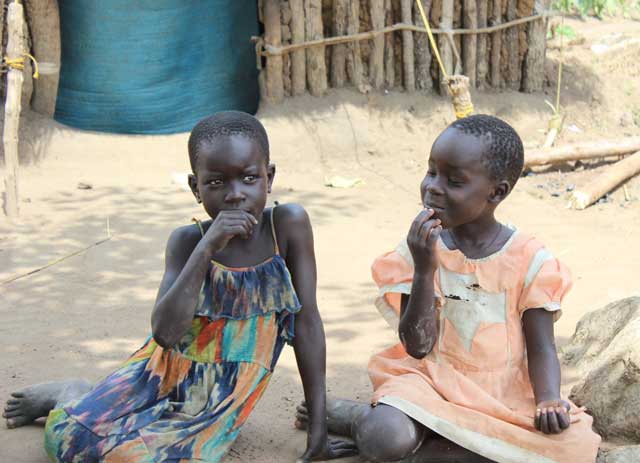
Kampala, Uganda | THE INDEPENDENT | The world is not a safe place for the girl child according to a new report released by the United Nations International Children’sEmergency Fund-UNICEF, Plant International and UN Women ahead of the 64th session of the Commission on the Status of Women.
The report titled, ‘A New Era for Girls: Taking stock on 25 years of progress’ shows that 25 years after the Beijing Declaration and Platform for Action that was aimed at advancing women’s and girls’ rights in the country-shows that girls today are still faced with violence and discrimination inspire of the declaration.
According to the report, while more girls today are able to attain both primary and secondary education hence reducing illiteracy, this does not stop them from being victims of violence. It shows that vices such as child marriages, rape and female genital mutilation put girls at a disadvantage compared to their male counterparts.
Henrietta Fore, the UNICEF Executive Director says that more needs to be done by countries in the world to ensure that girls are safe.
“Twenty-five years ago, the world’s governments made a commitment to women and girls, but they have only made partial good on that promise. While the world has mustered the political will to send many girls to school, it has come up embarrassingly short on equipping them with the skills and support they need not only to shape their own destinies but to live in safety and dignity,” Fore said.
She adds that a change in attitudes of people is needed to make sure girls are given a chance to prevail.
“Access to education is not enough – we must also change people’s behaviours and attitudes towards girls. True equality will only come when all girls are safe from violence, free to exercise their rights, and are able to enjoy equal opportunities in life,” Fore said.
Data from UNICEF shows that in 2016 women and girls accounted for 70 per cent of detected trafficking victims globally, most for sexual exploitation. It is estimated that 1 in every 20 girls aged 15-19 has been raped globally.
In Uganda, 2018 the Violence Against Children Survey showed that 1 in every 3 girls experience sexual violence during their childhood while 3 in 10 experience physical violence. 8 in 10 girls experienced emotional violence.
In addition, harmful practices such as early marriage and female genital mutilation continue to prevail in some parts of the country. An estimated 40.4 per cent of 20-49-year-old women were married by the age of 18; 11.6 per cent were married by the age of 15 and 1 in 4 teenage girls (15-19 years) are pregnant or have a child.
Anne-Birgitte Albrectsen, the Chief Executive officer of Plan International says that the report findings offer a holistic picture for girls 25 years after the Beijing declaration. She says if nothing is done to put an end to the discrimination that his face, the world won’t be able to meet the 2030 gender equality agenda.
“Adolescent girls, in particular, suffer heightened discrimination as a result of their age and gender and yet continue to be side-lined in their communities and in decision-making spaces, largely invisible in government policy. Empowering adolescent girls yields a triple societal benefit for girls today, the adults they become, and the next generation of children. If we fail to grasp this and to end the discrimination girls continue to face the world over, we will stand little chance of achieving the gender equality ambitions set out in Agenda 2030,” she said.
It further notes that girls today are more liable to suffer from mental ill-health than before.
Suicide is currently the second leading cause of death among adolescent girls aged 15-19, surpassed only by maternal conditions. Girls also remain at high risk of sexually-transmitted infections, including HIV, with 970,000 adolescent girls aged 10-19 living with HIV today compared to 740,000 girls in 1995. Adolescent girls aged 10-19 still account for around 3 in 4 new infections among adolescents worldwide.
Phumzile Mlambo-Ngcuka, the UN Women Executive Director says that even if girls are educated, they will not be able to take up their rightful positions at the workplace if other factors such as violence are not dealt with.
“Since 1995 in Beijing, when a specific focus on ‘girl-child’ issues first emerged, we have increasingly heard girls assert their rights and call us to account. But the world has not kept up with their expectations of responsible stewardship of the planet, a life without violence, and their hopes for economic independence. As long as women and girls have to use three times the time and energy of men on looking after the household, equal opportunities for girls to move from school into good jobs in safe workplaces are going to be out of reach,” Mlambo-Ngcuka said.
******
URN
 The Independent Uganda: You get the Truth we Pay the Price
The Independent Uganda: You get the Truth we Pay the Price



